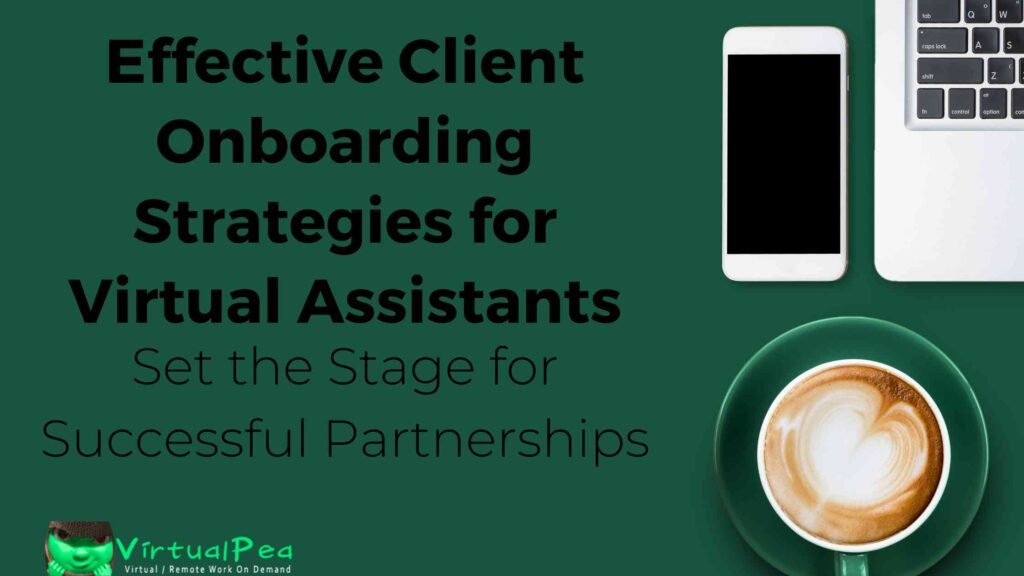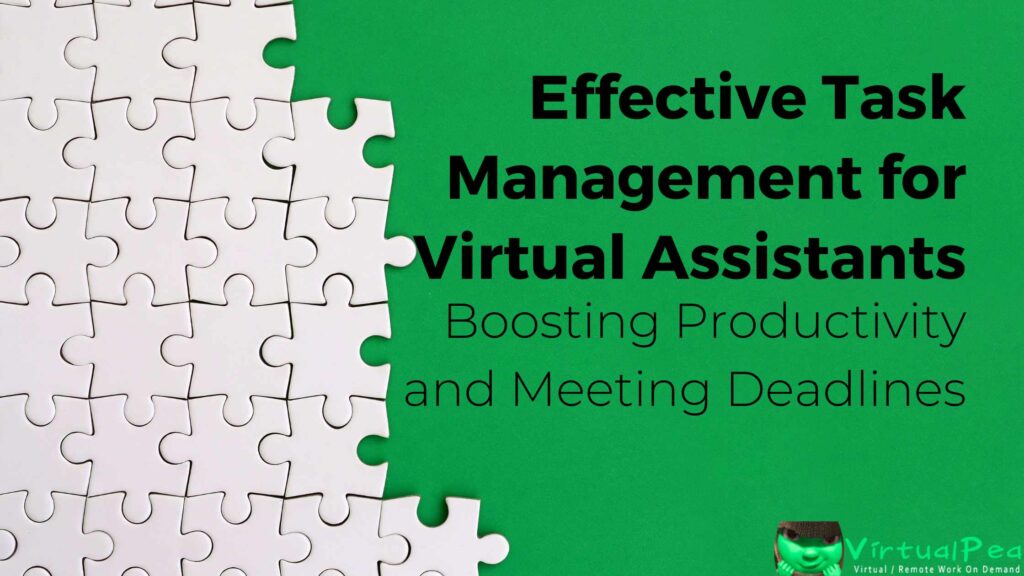The Importance of Continuous Learning and Professional Development for Virtual Assistants

In today’s fast-paced digital world, the role of a virtual assistant is constantly evolving. To stay competitive and deliver exceptional services, it is essential for virtual assistants to prioritize continuous learning and professional development. By acquiring new skills, staying updated with industry trends, and investing in career growth, virtual assistants can enhance their expertise and […]
Effective Client Onboarding Strategies for Virtual Assistants: Set the Stage for Successful Partnerships

Client onboarding is a crucial process for virtual assistants as it sets the foundation for successful partnerships and long-term client relationships. Effective onboarding strategies ensure that both parties have a clear understanding of expectations, goals, and workflows. In this article, we will explore key strategies to help virtual assistants onboard clients effectively and establish strong […]
Top Project Management Tools for Virtual Assistants: Streamline Your Workflow and Boost Productivity

As a virtual assistant, efficient project management is essential for delivering high-quality work and meeting client expectations. Luckily, numerous project management tools are available to help streamline your workflow, enhance productivity, and effectively manage tasks. In this article, we will explore the top project management tools that are invaluable for virtual assistants seeking to optimize […]
The Impact of Remote Work on the Virtual Assistant Industry: Adapting to the Future of Work

Remote work has revolutionized the way businesses operate, and the virtual assistant industry is no exception. As organizations embrace flexible work arrangements and leverage digital technologies, the demand for virtual assistants has grown significantly. In this blog post, we will delve into the impact of remote work on the virtual assistant industry and discuss how […]
How to Cultivate Professional Relationships as a Virtual Assistant: Building Trust and Long-Term Partnerships

As a virtual assistant, cultivating professional relationships is essential for your success and growth. Building trust, improving communication, and fostering collaboration are key factors in establishing long-term partnerships with clients. In this article, we will explore effective strategies to help virtual assistants cultivate professional relationships and thrive in their roles. 1. Communicate Proactively and Transparently […]
Strategies for Upselling and Expanding Services as a Virtual Assistant: Maximizing Client Relationships

As a virtual assistant, one of the key goals is to build long-term client relationships and continually provide value. Upselling and expanding services are powerful strategies to not only increase your income but also strengthen your partnerships with clients. In this blog post, we will explore effective techniques for upselling and expanding services as a […]
Effective Task Management for Virtual Assistants: Boosting Productivity and Meeting Deadlines

As a virtual assistant, mastering task management is crucial for delivering high-quality assistance and meeting client expectations. Effectively managing tasks helps you stay organized, prioritize your workload, and ensure timely completion of projects. In this article, we will explore practical strategies and tools to help virtual assistants enhance productivity, meet deadlines, and provide top-notch assistance […]
Tips for Effective Client Communication as a Virtual Assistant: Strengthening Connections and Delivering Exceptional Service

As a virtual assistant, effective client communication is the key to building strong relationships and delivering exceptional service. Since virtual assistants work remotely, the ability to communicate clearly, proactively, and professionally becomes even more crucial. In this blog post, we will share valuable tips to help you enhance your client communication skills and excel in […]
The Role of Emotional Intelligence in Virtual Assistance: Building Stronger Client Relationships

Virtual assistance is more than just completing tasks; it’s about building meaningful relationships with clients. While technical skills are important, emotional intelligence (EI) plays a crucial role in fostering strong connections and delivering exceptional service. In this article, we will explore the role of emotional intelligence in virtual assistance and how developing empathy, effective communication, […]
The Role of Project Management Methodologies for Virtual Assistants: Streamline Your Workflow and Boost Efficiency

Project management methodologies play a crucial role in the success of virtual assistants. These methodologies provide structure, organization, and efficiency to the workflow, ensuring that tasks are completed on time and with optimal results. In this blog post, we will explore the role of project management methodologies for virtual assistants and how they can help […]
